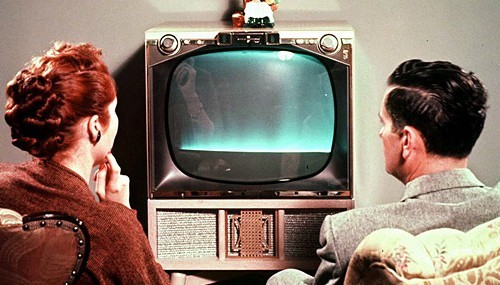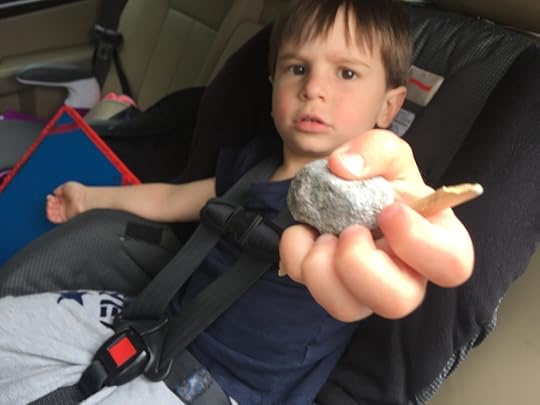Matthew Dicks's Blog, page 310
May 30, 2016
One of the most remarkable pieces of writing in New York Times history - for reasons that will surprise you
A New York Times piece from July 2009 entitled Cronkite’s Signature: Approachable Authority is truly remarkable.
It's not remarkable because of the content. The information and insight into Walter Cronkite is interesting but hardly groundbreaking or revelatory.
And it's not remarkable because of the writing style or particular assemblage of words. It's well written and effective but certainly not Pulitzer worthy.
No, the reason this piece is truly remarkable is because of the two corrections that immediately follow it. Both the size of the corrections (273 words long in contrast to a piece that is 997 words in length) and the particular errors made cause this piece to stand out as one for the ages.

Read the piece if you'd like, but unless you are a fan of Walter Cronkite, there is no need.
Just read this correction. You will be astounded.
Correction: July 22, 2009
An appraisal on Saturday about Walter Cronkite’s career included a number of errors. In some copies, it misstated the date that the Rev. Dr. Martin Luther King Jr. was killed and referred incorrectly to Mr. Cronkite’s coverage of D-Day. Dr. King was killed on April 4, 1968, not April 30. Mr. Cronkite covered the D-Day landing from a warplane; he did not storm the beaches. In addition, Neil Armstrong set foot on the moon on July 20, 1969, not July 26. “The CBS Evening News” overtook “The Huntley-Brinkley Report” on NBC in the ratings during the 1967-68 television season, not after Chet Huntley retired in 1970. A communications satellite used to relay correspondents’ reports from around the world was Telstar, not Telestar. Howard K. Smith was not one of the CBS correspondents Mr. Cronkite would turn to for reports from the field after he became anchor of “The CBS Evening News” in 1962; he left CBS before Mr. Cronkite was the anchor. Because of an editing error, the appraisal also misstated the name of the news agency for which Mr. Cronkite was Moscow bureau chief after World War II. At that time it was United Press, not United Press International.
This article has been revised to reflect the following correction:
Correction: August 1, 2009
An appraisal on July 18 about Walter Cronkite’s career misstated the name of the ABC evening news broadcast. While the program was called “World News Tonight” when Charles Gibson became anchor in May 2006, it is now “World News With Charles Gibson,” not “World News Tonight With Charles Gibson.”
May 29, 2016
Bill Gates: 5 Books to Read This Summer
Bill Gates offers five books to read this summer. It's a good list and a well produced video.
I think I'll be reading at least three of them.
May 28, 2016
Three shows that every married couple should be watching - and why this is dumb advice
David WIllis - a pastor interested in "encouraging married couples and families" and who founded StrongerMarriages.org and the Marriage app as a way to encourage couples to build stronger marriage - writes in TIME of three types of television shows that every married couple should watch in order to improve their marriage:
A show to help you learn togetherA show to help you dream togetherA show to help you laugh togetherIt's ridiculous advice, of course, because regardless of how troubled or unsatisfying a marriage may be, there is no couple on Earth who is going to read this article and end up changing the television shows that they watch in order to improve their marriage.
"Honey, we need to find a show to help us dream together. Pastor Willis says that will make us a much stronger couple!"
"Pookie bear, I just read an article that says we should be watching a show that we both find funny. How do you feel about Benny Hill or Tom & Jerry?"

The article is clickbait, probably promoted in social media by a phrase like "Three must-see television shows to save your marriage" or "Three TV shows that will make your marriage stronger and happier."
People click on these teaser link because it's a list (and people love lists) and because the article seems to promise an instant solution to a serious problem. Instead, you are offered suggestions like "a show to help you dream together" and think, "What the hell does that even mean?"
Then nothing changes.
He also suggests that less television overall is good for a marriage, but even this suggestion is fairly ridiculous. Less television is good for everyone, regardless of their marital status.
Nothing new or insightful here.
My wife and I watch very little television - mostly because we don't have the time to watch more but also because we have chosen to fill our lives with things that keep us from staring at the stupid box too much.
We enjoy TV. We just enjoy other things more.
But the one thing we've done that has been positive in terms of TV watching and our relationship is that in our nearly ten years of marriage and three years of dating, we have almost never watched a television show independently of each other.
We always watch television together.
The only exception to this rule is sports (she doesn't watch every NFL and baseball game with me) and The Walking Dead, a show that Elysha watched for three seasons until the violence and gore became too much for her and she had to quit. I continue to watch but am often multiple episodes behind because there are so few opportunities to watch a television show when she is not around.
That might be it. The only shows we don't watch together. And I think this is a great thing for our marriage, but it's not something I would recommend because I prefer to recommend strategies that can actually be applied to daily life.
Telling a couple that they must abandon their own personal tastes and TV watching patterns so they can sit beside each other on the couch every night at the expense of what they really want to watch is unrealistic.
Just as unrealistic as David Willis' recommendations in TIME.
May 27, 2016
#Biblebuffet
Protip: If you're using The Bible to justify your opposition to gay marriage, please don't forget to declare your disobedient, stubborn, and/or rebellious son a "drunkard and a glutton" and have him stoned to death for his behavior.
Deuteronomy 21:18-21

May 26, 2016
I hate meetings this much.
Want to know how much I hate meetings?
In August of 1999, I began my teaching career. Each school year starts off with a series of meetings a couple days before the kids arrive that may be absolutely necessary but are still excruciating because I hate meetings.
As I prepared to attend this first of what has been thousands upon thousands of meetings over the course of my teaching career, I was introduced to Jennifer, a new teacher also beginning her career. But because she was hired just a couple days before the start of school, she was permitted to skip this first meeting in order to prepare her classroom.
I still work with Jennifer. Today we teach fifth grade together.
It's been eighteen years since we began our teaching careers, and I'm still mad about the meeting that she got to skip and I did not.
Nearly two decades later, I still remember it, and I'm still angry about it.
I'm not kidding.

May 25, 2016
Boy vs. Girl: Episode 28 - Going gray, the reading habits of men, and infertility
In this week's episode, Rachel and I discuss going gray, the reading habits of men, and infertility.
You can listen here or - better yet - subscribe to our podcast in the iTunes store or wherever you get your podcasts.
And if you like the show, please consider leaving a review on iTunes. It helps readers find the show, and it makes me feel even better about myself.
In need of a little quiet
May 24, 2016
Teachers: Stop assigning word problems. It's a problem.
My daughter was working on her math homework last night.
Side note: First graders should not have homework. The research is exceedingly clear and unequivocal in this regard. Homework is meaningless and possibly detrimental to students until at least middle school. Many elementary schools have already abandoned homework for this very reason. As a teacher, I assign homework because it is required, but if given the freedom to do what is right, I would not. Instead, I try to find ways to make my homework meaningful and fun whenever possible.
Anyway...
Clara had completed several problems when she moaned, "Why does math have so many problems? I don't like problems."
And she was right.
Why do we refer to equations as problems?
Why do we teach students to solve word problems?
No one likes problems. Clara is right.

Imagine what might happen if I started handing books to kids and said, "Here. You'll love this problem. Get reading."
Or if I gave my students a map and said, "I have a problem for you today. Label all the countries of Europe on this map."
Or if I told students, "Today we begin our science fair projects. This will be an enormous, high stakes, three-month problem for you and possibly your parents, too, depending on their inability to detach themselves from your long term projects."
These are not problems.
Mathematical equations are not problems.
Bed bugs are a problem. Drug addiction is a problem.Pretending that your bigotry is based upon Scripture is a problem.The great Pacific garbage patch is a problem.New York Jets fandom is a problem.Designer logos are a problem. Humble bragging is a problem.My inability to hit the driver more than 175 yards is a problem.Institutions like private schools that perpetuate the achievement economic are a problem. My daughter's refusal to put away her markers is a problem.But the addition "problems" that my daughter was solving?
Not problems. Equations.
Beginning in September, I will cease referring to anything in mathematics as a problem.
Multiplication problems will become equations.
Word problems involving trains traveling at different speeds in different directions or boxes filled with varying amounts of widgets will no longer be referred to as problems. They will become mathematical situations (unless I think of something better).
No longer will my students think of math as a subject filled with problems. They have enough problems in their lives already. They don't need any more.
Will this make my students suddenly love math? Embrace it with enthusiasm and vigor?
I don't think so. Some will still love math. Others will not. I'll still work like hell to get them all to enjoy solving equations and understanding how numbers work.
But removing the word "problem" from my vernacular will make me feel better about talking about math, and perhaps over time, their opinions will shift ever so slightly.
Either way, referring to mathematical equations and mathematical situations as problems is a problem.
And It only took me 18 years of teaching for me to realize this.
May 23, 2016
In favor of simplicty
On Saturday, during my daughter's dance recital, I was charged with keeping my son entertained during the hour-plus chasm between her first and second performances.
I took the hungry boy to CVS and told him that he could buy anything he wanted as a snack.
He chose raisins despite my attempts to push him into Animal Crackers or Oreos.
I wanted to share.
Then I asked him which of the nine hundred plastic electronic colorful noisy flashing branded toys in the backseat of the car he wanted.
Instead, he picked up a rock and a stick off the ground and said, "I want to play with this stuff."
And he did. The whole time.
A stick and a rock and some raisins.
The boy understands the joy of simplicity. Let it be a reminder to all of us.



May 22, 2016
If I could travel to the past, 13 things I would do differently (without risking my current existence)
Time travel is a dangerous piece of business.
I have argued that the greatest super power - without question - would be the ability to travel in time. That said, I have also argued that I would prefer that this power only send our hero forward in time, to see the disasters that loom ahead and perhaps prevent them, rather than travel back in time and potentially unravel everything that has already happened.

With that in mind, I thought about my own past. I am supremely happy with where I am today and would never risk the existence of my wife and children in order to change something in the past, but if I could go back in time and change something, I wondered what I might change that would not risk my present state of being.
So I made a list. It's short, because large scale changes could alter my entire future. Though I would like to avoid being arrested and tried for a crime I did not commit or the armed robbery that has led to a lifetime of post traumatic stress disorder, those experiences helped me to land where I am today. I had to be careful and choose only those moments that are worth changing but would also not alter the course of my life to any great degree.
Keeping these parameters in mind, here is my list of things I would change in my past if given the opportunity:
Complete my Eagle Scout service project earlier - before a car accident interfered with my dream of becoming an Eagle Scout Listen to audiobooks sooner rather than thinking of them as "not real reading"Don’t turn down that possible threesome opportunity I had when I was 19 years oldBegin playing golf by taking actual lessons and not the occasional advice of friends who clearly did not have my best interests at heartVisit my mother more often before her death Punch Glenn Bacon in the face after he threw a music stand into mine in eleventh gradeVisit with Laura - my high school girlfriend - more often before her death and assure her that I would keep my promiseComplete my Master’s program both slowly and efficiently rather than quickly and expensivelyAttend my grandfather's funeralIncrease the cost of my DJ service much earlier in my company's careerDon't call Pirate - our dog - back across the street and into the path of a speeding pickup truck while waiting to be picked up for Sunday schoolKeep my flute in a safe place, stop lending it to students who forgot their flutre, and ultimately prevent its theft from my classroomMake that investment in Citigroup in 2008 that I talked about constantly but failed to execute





